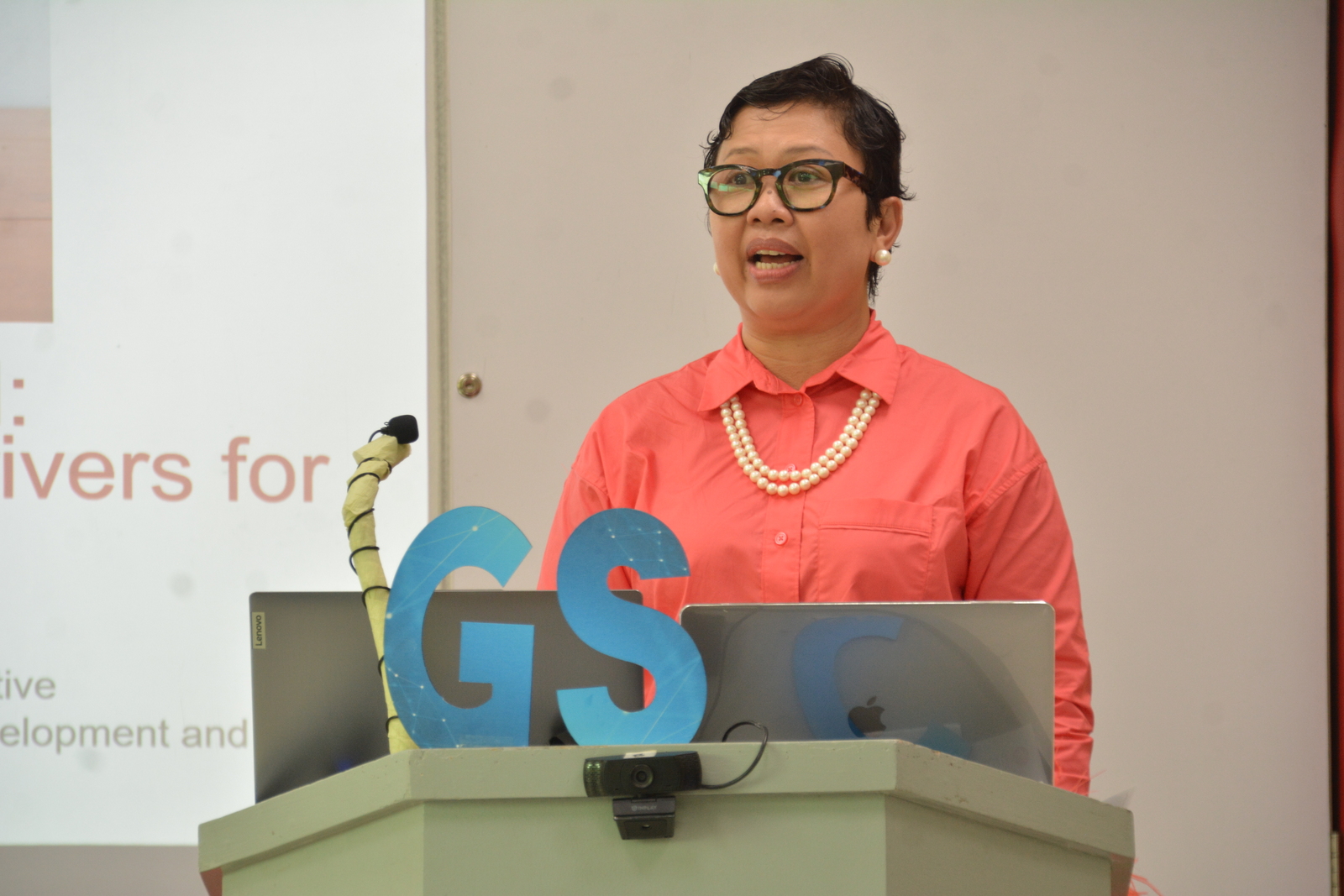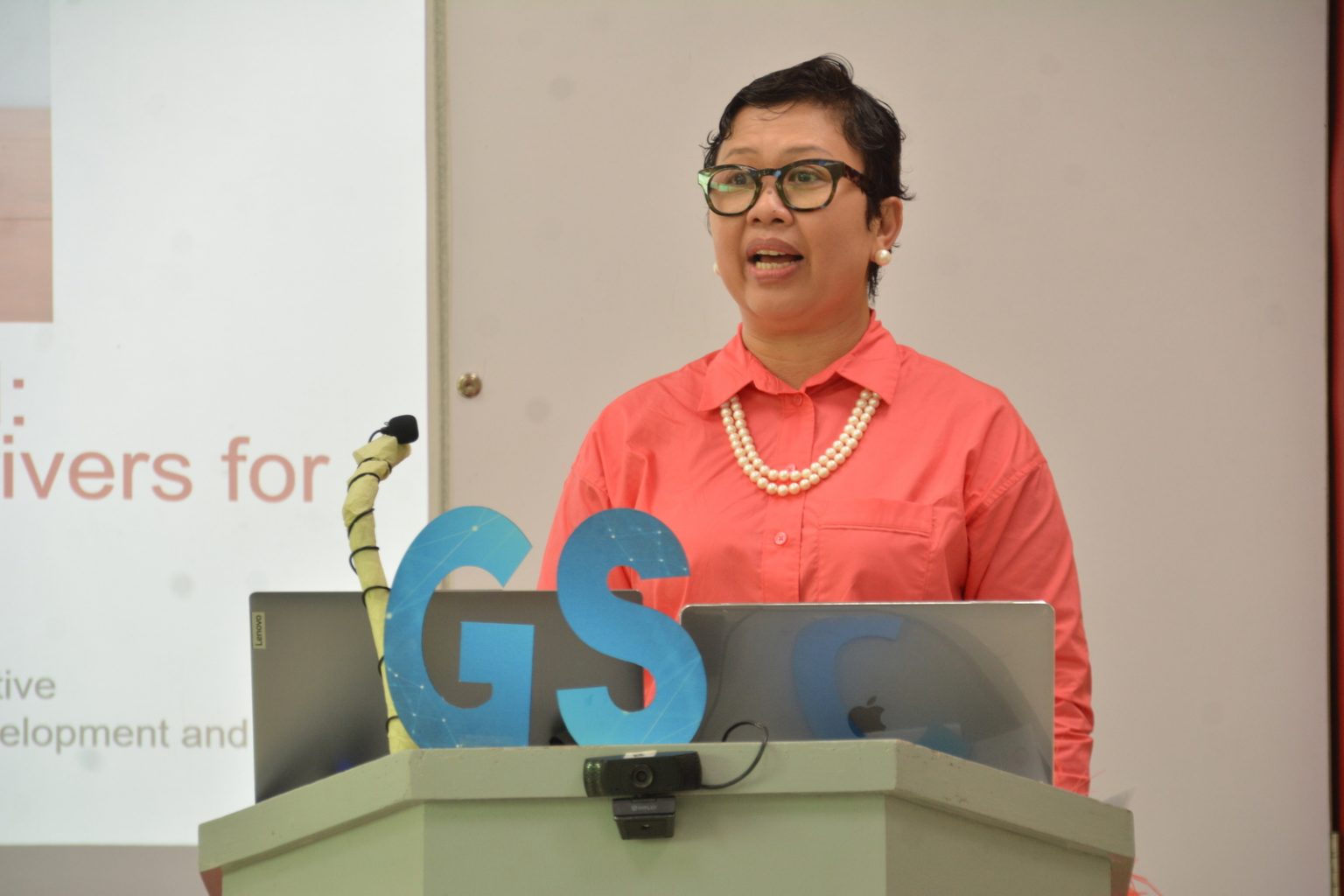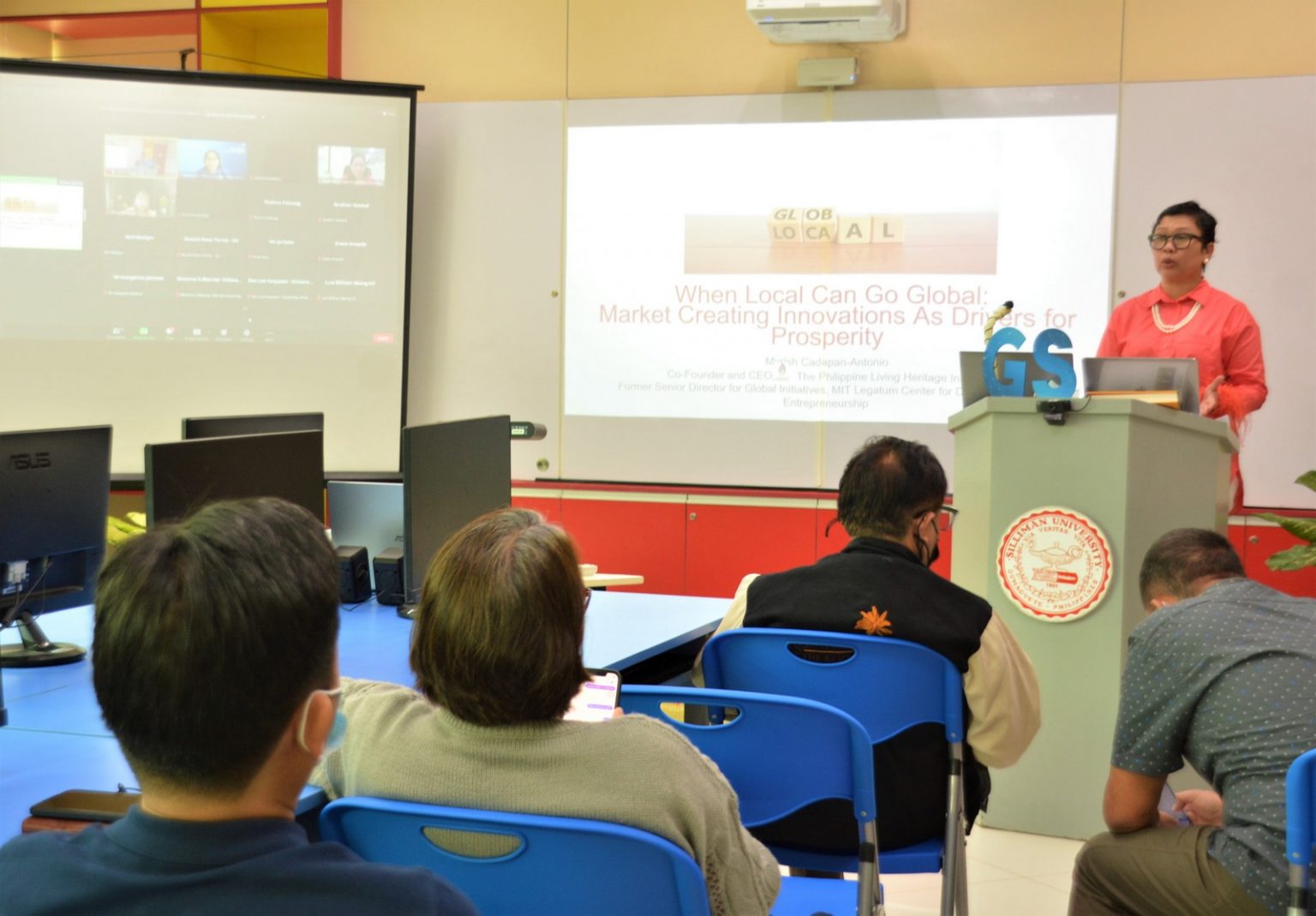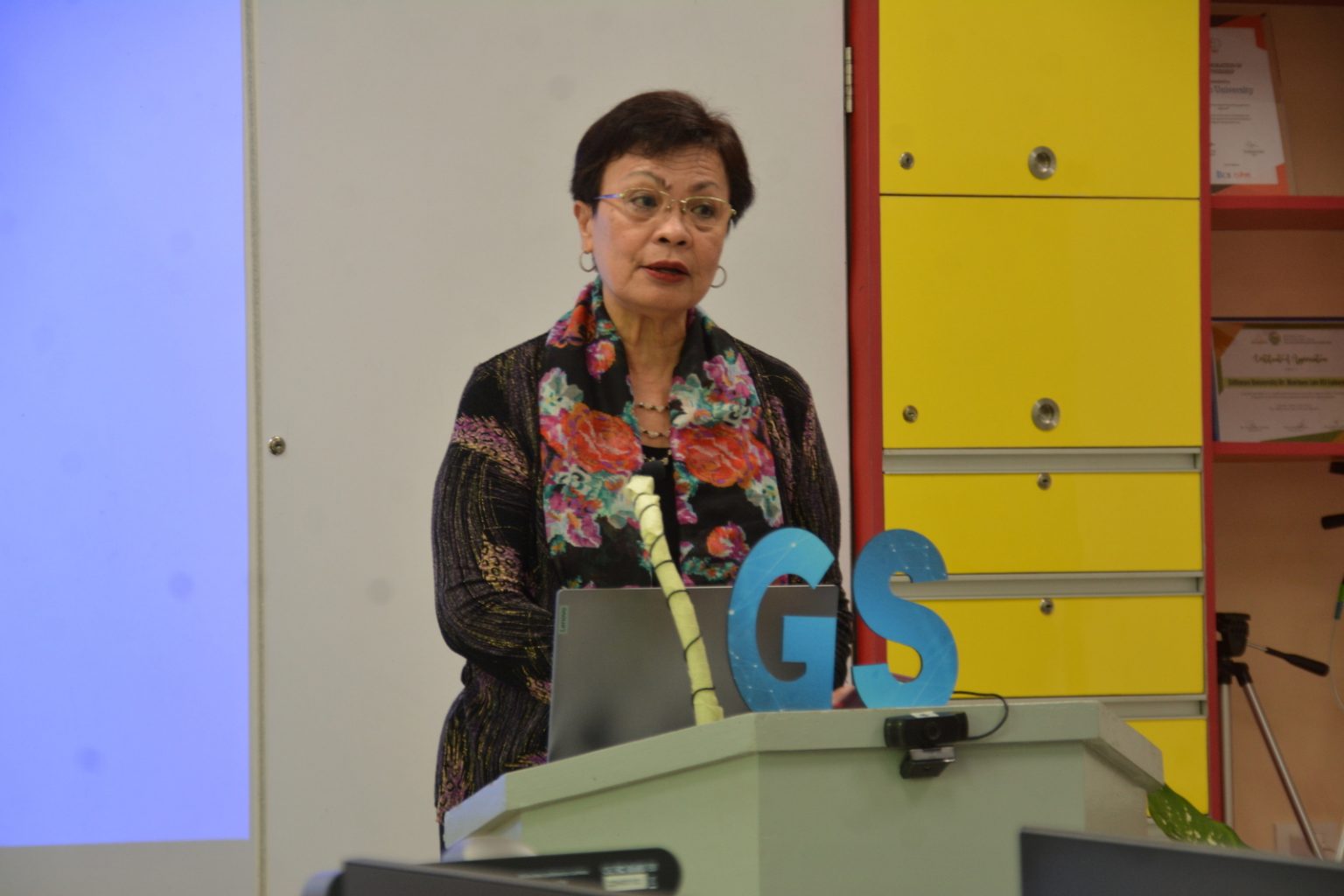
Former MIT director talks on innovation to solve poverty

Atty. Myrish Cadapan Antonio, former senior director at Massachusetts Institute of Technology (MIT), talks about market-creating innovations as drivers of prosperity.
Atty. Myrish Cadapan Antonio, former senior director at Massachusetts Institute of Technology (MIT), talked about how creating prosperity using innovation can solve poverty in the inaugural lecture of the Silliman University (SU)-Dr. Mariano Lao Global Studies Center, January 12, 2023.
Antonio’s lecture, titled “When Local Can Go Global: Market-Creating Innovations as Drivers for Prosperity,” introduced a framework for driving prosperity in developing countries using market-creating innovations.
The framework is based on the book, “The Prosperity Paradox: How Innovation Can Lift Nations Out of Poverty” by Clayton Christensen, Efosa Ojomo, and Karen Dillon.
Antonio taught a course on the framework with Ojomo in Africa with early-stage entrepreneurs, during her time as the senior director of fellowships and global initiatives at the MIT Legatum Center for Development and Entrepreneurship.
Creating prosperity
The framework is founded on the “prosperity paradox,” which happens when stakeholders achieve lasting wealth and development because they focus on creating prosperity, rather than trying to solve symptoms of poverty.
Ojomo, through a recorded video played during Antonio’s lecture, cited that based on the Clayton Christensen Institute for Disruptive Innovation’s research, having a “predominantly innovation-focused strategy” is the “best shot at creating lasting prosperity.”
Ojomo leads the global prosperity research group at the Clayton Christensen Institute for Disruptive Innovation, a think tank based in Boston and Silicon Valley.
The framework presented by Antonio suggests that countries must focus on marketing-creating innovations to build prosperity and that resources should go towards supporting innovative entrepreneurs.
“This framework is a useful tool that can capacitate local innovators and entrepreneurs in creating opportunities to drive prosperity, such that eventually their products and services can scale to global markets and other entrepreneurial systems,” said Antonio.
Market-creating innovations
To drive prosperity, the framework suggests focusing on market-creating innovations, which Antonio explained as a type of innovation that creates a new market by “transforming complex and expensive products and services into simple and more affordable ones, making them accessible to a new segment of people called nonconsumers.”
Nonconsumers, said Antonio, are people who are unable to afford existing products or services or lack the time or expertise needed to use them.
“(Market-creating innovation) somehow democratizes previously exclusive products and services,” she said.
Antonio said market-creating innovations can drive prosperity because they can create jobs, create profits from a wider swath of the population, have the potential to scale to global markets, and can change the culture of entire societies because of the holistic view of prosperity.
“When innovators create a new market targeted at a larger scale of the population that has not been made available before, the consumption grows,” she added.
Antonio explained, however, that market-creating innovations can be “capital-intensive at the beginning” and “risky” because this type of innovation builds a new market system instead of just products and services, and because nonconsumers are typically seen as unable to afford innovation.
“The bigger the market, the bigger the impact and infrastructure will need to be created within the entrepreneurial ecosystem,” she said.
More relevant courses
Antonio’s lecture is an example of the type of courses to be offered by the SU-Lao Global Studies Center, which will roll out more lectures in the coming months before it opens for enrollees.
Dr. Betty Cernol McCann, SU president, said in the closing message after the lecture that the Global Studies Center will offer short courses and certificate programs that are relevant to the needs of today’s global, digital, and knowledge economy.
The online short courses and certificate programs to be offered by the Global Studies Center will be open to all, including those who are not enrolled in any of SU’s academic programs.
Course and program completers from the Global Studies Center will be able to receive credentials from SU, which McCann said is the micro-credentialing approach taken on by the Center.

Atty. Myrish Cadapan Antonio, former senior director at Massachusetts Institute of Technology (MIT), talks about market-creating innovations as drivers of prosperity.

Dr. Betty Cernol McCann, SU president, talks about the future of the SU-Lao Global Studies Center.


